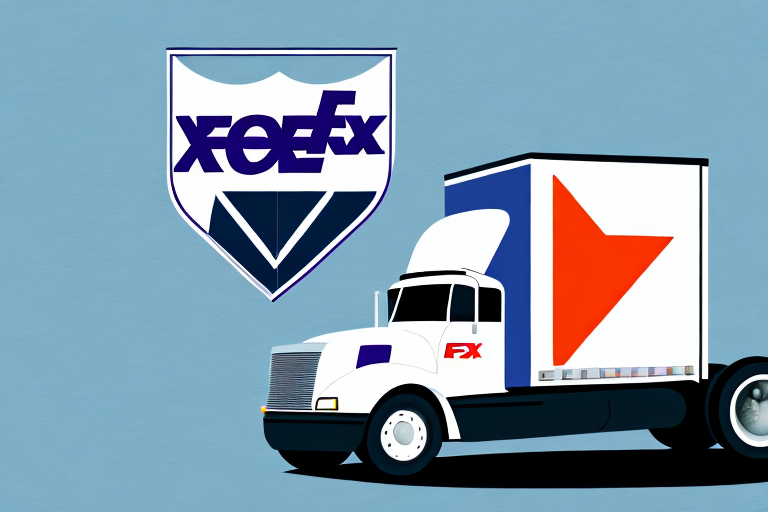Uncovering the Unauthorized Fees Charged by FedEx
In today’s competitive business landscape, shipping fees play a crucial role in a company’s profitability. FedEx is a leading shipping provider for businesses of all sizes, but many may be unaware of the hidden charges that can inflate shipping costs. These unauthorized fees can accumulate quickly, leaving businesses frustrated and straining their budgets.
Common FedEx Hidden Fees
Residential Delivery Fees
FedEx imposes residential delivery fees when packages are delivered to residential addresses, even if the recipient is a business. According to FedEx’s official policy, these fees are higher due to the increased time and resources required for residential deliveries.
Fuel Surcharges
Fuel surcharges are additional fees that reflect the fluctuating cost of fuel. FedEx adjusts these surcharges regularly to account for changes in fuel prices. As of 2023, the average fuel surcharge by FedEx is approximately 10% of the shipping cost, as reported by industry analyses.
Remote Area Fees
Shipping to remote or hard-to-reach areas incurs additional charges. These fees compensate for the extra effort and transportation costs involved. Businesses shipping to rural locations should anticipate these higher costs.
Address Correction Fees
If a shipment address is incorrect or incomplete, FedEx charges an address correction fee. Ensuring accurate and complete address information can help businesses avoid this unnecessary expense.
Dimensional Weight Fees
Dimensional weight fees are applied to packages that are lightweight but occupy significant space. FedEx calculates shipping costs based on the package’s dimensions rather than its weight, which can lead to higher charges for bulky items.
Impact of Unauthorized FedEx Fees on Businesses
Unauthorized fees from FedEx can significantly affect a company's budget and operational expenses. Small businesses and startups are particularly vulnerable, as these hidden costs can limit their ability to invest in marketing, innovation, and growth. According to a Small Business Administration report, shipping costs account for up to 10% of total expenses for many small enterprises.
Regularly reviewing FedEx invoices is essential for businesses to identify and dispute unauthorized charges. Common examples include residential delivery fees, fuel surcharges, and address correction fees. By addressing these charges, businesses can improve their financial health and allocate resources more effectively.
Understanding FedEx's Pricing Structure
FedEx’s pricing structure is multifaceted, based on factors such as weight, destination, and package size. Navigating this complexity can be challenging, especially with the addition of hidden fees.
For instance, the FedEx pricing guide outlines how different variables impact shipping costs. Understanding these variables helps businesses anticipate potential fees and make informed shipping decisions.
Strategies to Detect and Avoid Unauthorized Fees
Thorough Invoice Review
Businesses should meticulously review FedEx invoices to identify any unfamiliar or unclear charges. Cross-referencing fees with FedEx’s official fee schedule can help clarify discrepancies.
Proper Labeling and Packaging
Ensuring all shipments are accurately labeled and properly packaged can prevent additional fees. FedEx’s packaging guidelines provide detailed instructions to avoid extra handling charges.
Utilizing FedEx’s Automated Tools
FedEx offers automated shipping tools that assist in accurately calculating shipping costs and identifying potential issues before they result in unexpected fees. These tools enhance efficiency and accuracy in the shipping process.
Negotiating Shipping Rates
Businesses can negotiate customized shipping rates with FedEx, especially those with high shipping volumes. Engaging with a FedEx representative to discuss specific shipping needs can lead to more favorable rates and reduced risk of unauthorized fees.
Legal Considerations of FedEx Fees
While FedEx’s additional fees are generally within legal boundaries, businesses can challenge unfair charges. According to the Federal Trade Commission, companies must adhere to transparent pricing practices. If a business believes it has been unfairly charged, it can dispute the fees directly with FedEx or seek legal advice.
Understanding FedEx’s terms and conditions is crucial for businesses to recognize their rights and the company's obligations regarding extra fees.
Comparing FedEx with Other Shipping Providers
FedEx is not the only provider with hidden fees; competitors like UPS, DHL, and USPS also have additional charges. Comparing the fees and services of these providers can help businesses choose the most cost-effective and reliable shipping option.
For example, UPS and DHL have their own fee structures and service offerings. Evaluating these can provide insights into which provider best meets a business’s shipping needs.
Strategies to Save on FedEx Shipping Costs
Consolidating Shipments
By consolidating multiple shipments into a single package, businesses can reduce overall shipping costs and minimize the number of extra fees incurred.
Leveraging Third-Party Logistics Providers
Partnering with a third-party logistics (3PL) provider can offer businesses access to better shipping rates and streamlined logistics management. 3PLs often have established relationships with shipping carriers, enabling them to secure discounts on behalf of their clients.
Selecting Cost-Effective Delivery Options
Choosing appropriate delivery options based on urgency and cost can help businesses avoid unnecessary fees. For instance, opting for standard delivery instead of expedited services can lead to significant savings.
The Future of FedEx Shipping Fees
As the e-commerce landscape continues to evolve, FedEx’s fee structure may adapt to meet changing business needs and market conditions. Businesses must stay informed about these changes and proactively manage their shipping strategies to mitigate potential cost increases.
Emerging technologies and increasing competition may drive FedEx to offer more transparent and flexible pricing models in the future. Staying updated with FedEx’s announcements and industry trends can help businesses anticipate and adapt to these developments.
Conclusion
FedEx imposes several hidden fees that can significantly impact a business’s budget and operations. Common fees include residential delivery, fuel surcharges, remote area fees, address corrections, and dimensional weight fees. To manage these costs, businesses should thoroughly review invoices, ensure accurate labeling and packaging, utilize FedEx’s automated tools, and negotiate favorable shipping rates. Additionally, comparing FedEx with other shipping providers can help identify more cost-effective options. By implementing these strategies, businesses can minimize unauthorized fees and optimize their shipping expenses.








